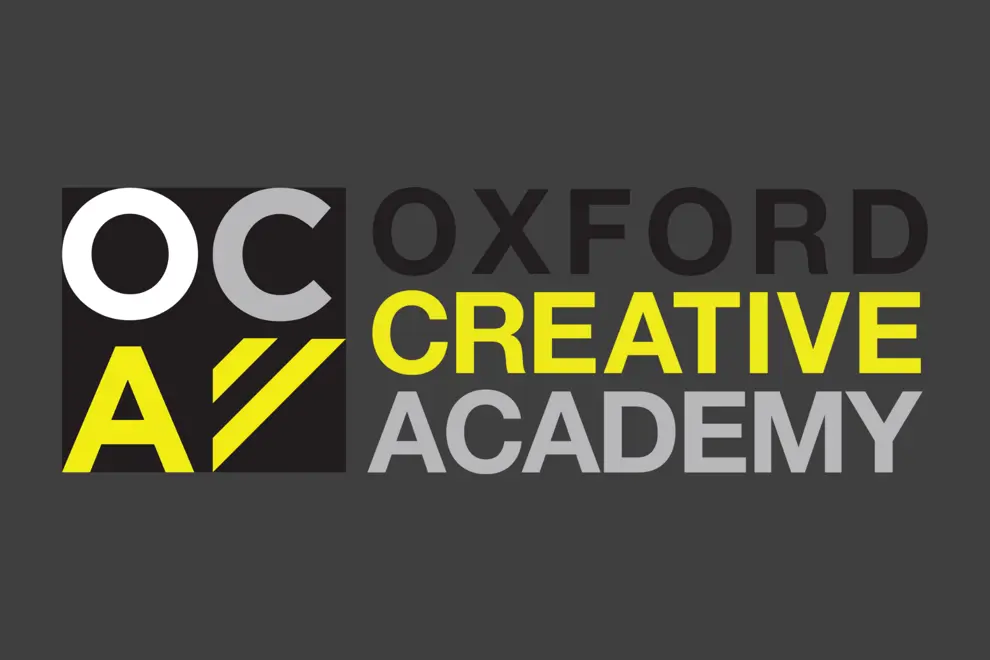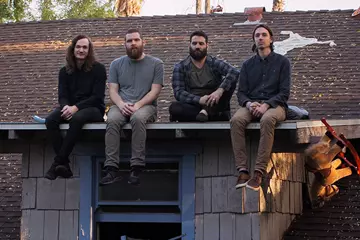To say the modern-day music industry is a labyrinth, we’d be making an egregious understatement. It’s hard to know which paths lead where – from writing and recording to producing, distributing, marketing, touring, growing and sustaining a career... It’s no wonder the business churns and burns through so much promising talent.
To actually make any progress, knowledge is vital. But “traditional” means of education have their own barriers to entry – particularly for creatives who thrive in practical environments, where they can actually execute all their wild ideas, not sterile classrooms where they’re bound to mere theory. This is where the Oxford Creative Academy comes in, reimagining music education by placing students in real-world industry settings and showing them – hands-on and in realtime – the skills to thrive in it.
Developed and delivered in tandem with one of Sydney’s most prestigious live music venues, the Oxford Art Factory, OCA prioritises independence and autonomy: it’s an ATAR-free zone with no useless electives, deadlines, exams or classrooms, but instead access to a wealth of creative facilities – like the OAF itself for hosting live events, the Antipodes Music Group studio in Surry Hills for recording and producing, and The A&R Dept. for A&R services, label management, publishing, distribution, publicity and more. This way, students don’t just learn about the industry but leave with firsthand experience in it, adaptable over countless settings.
A passion project at its core, OCA was borne of an idea from CEO and educator Matt O’Connor and the Tilley family, Simon and Barry (the venue’s owners), who came to the education sector with more than three decades of combined experience in the Australian music and education industries. It all started with the well-established Music Makers Club, an ongoing showcase of up-and-coming artists that O’Connor hosts with venue operator Mark Gerber - a monthly at the OAF (its 94th edition will go down on February 23). Running those events, he grew close with the venue’s owner-operators and found that between the four of them, they had the experience and resources necessary to start something truly revolutionary.
Don't miss a beat with our FREE daily newsletter
With the ambitious vision of OCA set in place, O’Connor set out to “test the market” with an unaccredited short course in Music Fundamentals, which he hosted out of his former recording studio, Hercules Street, with an inaugural class of 32 students. He ran that course for “about 18 months”, as he tells TheMusic.com.au, before setting off to become accredited, learn the fundamentals of educating, and earn the licences (both domestic and international) to launch OCA as a legitimate, board-certified institution – a process that took some four years.
O’Connor and his team developed a “unique training assessment strategy” based on his own three-decade tenure in the music industry, condensing a lifetime of lessons learned – both positive and negative – into courses that don’t just teach people how to move forward, but avoid tripping over the hurdles they’ll face along the way. He explains: “I’ve always been a very hands-on type of person, you know? I believe very much in the Nike saying, ‘Just do it.’ And because of that attitude, I've made a lot of mistakes, and jumped in the deep end where I probably should’ve waded out from shallow. But you live and learn – and I wanted to apply that kind of principle to the courses, so we take away the element of risk for new students coming through.”
OCA currently offers three Cert IV courses – Entertainment Business Management, Live Music Performance, and Music Production (Studio) – with two more launching in the near future: a Cert IV in Music Production (Live) and a Diploma of Business. All of these courses are designed to cover what O’Connor describes as “the five sectors of the music industry”, allowing students to graduate with “a holistic view” of how the business operates. As per the official OCA course guide, these sectors are outlined as such:
Creators: Entrepreneurs who create intellectual property and develops business ideas.
Management: Represents entertainment businesses, developing plans and strategies, navigating the industry and building relationships.
Distribution: Facilitates the supply of physical and digital products on behalf of labels, publishers and creators.
Publishing: Administers compositions, licences and synchronisation with video.
Events: Hosts live music performances as both singular shows or festivals.
“We want to give students a really good indication of how all the different part of the industry work in conjunction with each other,” O’Connor says, “and how to navigate through those sectors. Being a Cert IV course, there are 14 different skills that need to be applied – and a lot of those skills are transferable, so you can apply them in multiple sectors.”
Equally important as the course material is how it’s distributed. “I could never sit in a classroom as a kid,” O’Connor quips, “so I didn't want to have people sitting in a fluoro classroom all the time. We’ve adopted the strategy to make it flexible for students to choose [how they study] – they can do it online or they can come in one day a week and work with us at the Oxford Art Factory, in the environment itself.”
O’Connor stresses the importance of meeting and working with industry professionals throughout one’s study. As students work through the course, O’Connor and the OCA crew “provide the mentorship, and the foundations, for them to apply and flex those newly found skills in a real industry setting.” Case in point: the monthly Music Makers Club, which is now fully run by OCA students. “They pick the bands, do the front-of-house, do the marketing, organise the production... anything to do with the event, they run it,” O’Connor proudly declares.
Beyond that, students have access to a 360-degree Creative Hub, where they can build their careers while learning with a sprawling suite of industry-leading resources. As mentioned earlier, there’s access to the Antipodes Music Group for recording and production, and the comprehensive artist services offered by The A&R Dept. But OCA also has partnerships with Wise Music for publishing and FUGA for distribution, and it offers an in-house Student Wellbeing service headed up by counsellor Mia Marcus Clark.
“The concept of the 360 degree hub is to get creative people to collaborate, nurture each other and build communities,” O’Connor says. “You can put on events, you can produce and release records, you can send your music out for publishing and synchronisation, you can perform... And then at the same time, you're studying. [The ultimate goal is to be] educating artists to run their own businesses, understanding intellectual property, negotiating deals, doing their own contracts and their own project management... You know, having all the skills they need to be successful.”
A key aspect is the academy’s partnership with the Oxford Art Factory, which Nic Rodwell – OCA’s administration officer, industry engagement advisor and student services manager – says offers students a “warts-and-all” look into the “industry side of things”. He explains: “You’ll turn up for a session with Matt on a Tuesday morning, and he’ll help you work through your assignment at 10am while people are scrubbing the last night's beer off the floor – and then you're there through 'til four o'clock, when you get to see the venue warm up and become the thing you actually see from the outside. Your education is unparalleled in that respect.”
O’Connor shares the sentiment, saying the OAF offers “a great resource for people to meet and collaborate” in a practical way. “Quite often,” he says, “if we've got a class happening and a band starts soundchecking next door, we’ll go and watch it. And you know, the students can go and meet the band or meet the other people working that show, and there’s a lot of engagement. [The students are] talking with people in the industry and getting a deeper understanding of how it all works.”
Looking more at the school’s day-to-day operations, Rodwell attests that part of its beauty comes in the flexibility: “We have students who are unemployed, part-time and full-time, and they all do the course at their own pace, then come together every month for the Music Makers Club. And in that four-week span, they might be doing the course all day, every day, or they might be smashing two units out across a couple of weeks. It’s quite self-directed.”
In order to get students set on the right path, though, Rodwell and O’Connor engage with each in “quite a rigorous onboarding process”, where the educating crew aims to “really understand what their expectations are, what type of business they want to be in and where they see themselves”, then tailor the education to their specific needs.
O’Connor says the team assess every student’s individual potential, noting OCA’s smaller scale and independence as something that very much works in its favour: “It’s not a big organisation – we’re a private, family-owned business of people who are passionate about the industry... We try to get interactive [with the learning] as early as we can, and you know, all that engagement is really helpful for everybody.”
In addition to O’Connor and Rodwell – who have worked together for “about five years” with the latter managing The A&R Dept. alongside O’Connor – the OCA team includes full-time educators Mark Costa (whose performing credits include major theatre works like Billy Elliot, Mamma Mia and Jesus Christ Superstar) and Oliver Marlan (whose work in audio engineering, sound design and musical composition has been used by the likes of Azealia Banks, Jack Ladder and Kirin J. Callinan).
Guest educators have also included industry icons like Alexie Glass-Kantor, Jack Colwell, Charis Orchard and David Gugliotta – but as we’ve learned thus far, you never know who you’ll bump shoulders with at OCA.
OCA is currently accepting applications for its February 2024 intake – head here for all the info on how to sign up. There’s also a Valentine’s Day sale running “for the love of music” from today (February 12) until midnight on Sunday February 18, offering 25 percent off all courses.
















